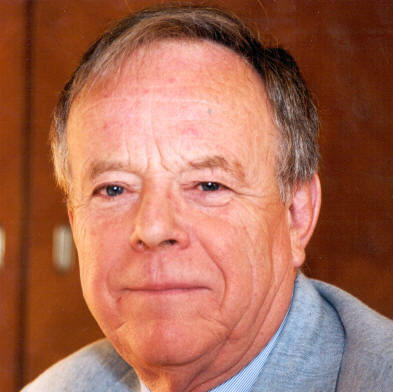Press
Release ECE/GEN/00/3
Geneva, 19 January 2000
REGIONAL
PREPARATORY MEETING ON THE 2000 REVIEW OF THE IMPLEMENTATION OF THE BEIJING PLATFORM FOR
ACTION
Introductory Statement
by
Yves Berthelot, Executive Secretary,
Economic Commission for Europe

Geneva, 19 January 2000
Ministers,
Excellencies,
Dear delegates and colleagues,
Once again I would like to express my
pleasure at seeing such large participation from the 55 ECE member countries and
non-governmental organizations. The cause which unites us here today, equality between men
and women, is a decisive factor for the future of our societies.
Such an assembly can only take place
because of the generous time and ideas given by all those we have called upon. I am
thinking of the delegates from Geneva, experts from capitals, non-governmental networks
and their liaison office in Geneva and the speakers who will introduce the different
debates. I am also thinking of Germany, Finland, Norway, the United Kingdom and
Switzerland which have financed the substantive contributions and the presence of the
panellists, and, in particular, of the partner institutions, the European Community, the
Council of Europe, UNDP and UNIFEM. By facilitating the participation of some 150 NGO
representatives from central and eastern Europe, UNDP and UNIFEM, along with the Danish
Government and private foundations, have allowed them to make their voices heard, to share
their experiences and to strengthen ties.
Let’s hope that over the next three
days, these joint efforts induce us to make real commitments and dissuade us from false
pretences. Progress is modest in the four themes on which we will focus, economy,
violence, decision-taking and national mechanisms to assure equal rights in our region,
and in certain cases the problems have reached worrying proportions.
The most important progress has been made
in sensitizing public opinion to these questions, progress tied, in all evidence, to the
important impulse given by NGOs who devote themselves to the equality and improvement of
the status of women. In several countries this has resulted in a better understanding of
their contribution to the economy and their capacity to occupy high level responsible
posts in public life. It has also increased support for victims of violence and in some
countries laws for reducing discrimination have been improved.
However, these advances remain
insufficient: the entire situation has evolved little and has too often declined. Women
continue to occupy a large majority of low paid precarious jobs with, corollary, unequal
access to social benefits. Globalization reinforces this precariousness throughout the
entire region. Women are still in the minority in all spheres of decision-making,
politics, economics and public functions. Investigations reveal little change in
stereotypes and the sharing of tasks between men and women. In countries with economies in
transition, which have serious economic difficulties, national mechanisms for equality
have weakened and networks for trafficking in women and children have multiplied. This
concerns each country of the region, for if poverty can be the cause of the development of
prostitution, these networks feed western clients. Too often, States sanction the victims
of this trafficking more than the organizers. At least 20% of women in the entire region
are victims of domestic violence and the situation is becoming worse in countries where
unemployment is rising. Finally, recent conflicts have given rise to massive and odious
violence against women.
These developments are serious and that is
why the decisions which you take here are important. The first decision goes without
saying: to apply the existing laws concerning violence, non-discrimination in recruitment
and working conditions in precarious employment. This will already largely improve the
situation. It is unrealistic to await new rules to miraculously solve the problems if
those which are already in force are not applied.
The second decision is important if one
wants to go beyond good intentions and grant each other the means to evaluate actions. It
is necessary to develop follow-up indicators and mechanisms. In this matter very little
has been done since Beijing although such means are essential for sensitizing, mobilising
and correcting policies.
The third decision is practical and will
be directly effective: to reinforce the partnerships between actors, the public and
non-governmental organizations and support the latter in their operational activities,
i.e. lobbying, education and sensitization. Special support, moral, technical and
financial, should be given to women’s NGOs in the countries where women have suffered
most from the transition process.
The very large presence of NGOs in this
assembly shows their dynamism in mobilizing themselves, organizing themselves and taking
action. It also shows the confidence and the cooperation which has been established
between the secretariat and the NGO community engaged in the question of equality for men
and women, notably the NGO Committee on the Status of Women and the NGO Group for Women in
the UN/ECE region.
I am convinced that in three days we will
leave here satisfied with the work accomplished, you will have adopted strong conclusions,
made new contacts. However, the success of this meeting will be measured by the
determination with which you follow up on the dialogue, put into place the conclusions in
the region itself and promote them as an important contribution to the global review. The
UN/ECE, a neutral forum where all the countries of Europe are on an equal footing, is at
your disposition to facilitate all these missions: to exchange experiences, facilitate
dialogue between governmental and non-governmental actors, take on new engagements and
bring a regional perspective to world events.
For further information please
contact:
Information Unit
United Nations Economic Commission
for Europe (UN/ECE)
Palais des Nations, Room 356
CH - 1211 Geneva 10, Switzerland
Tel: +(41 22) 917 44 44
Fax: +(41 22) 917 05 05
E-mail: [email protected]
Website: http://www.unece.org